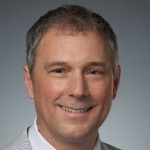April 27, 2022 12:00 pm Central
HERO Members Only
Guest Panelists:

Mark Attridge, PhD
This presentation features research-based trends in the employee assistance program (EAP) industry in the United States. Recent data on market size, outcomes of counseling, and the boom in new technology-based mental health support provider companies are examined. Recommendations are given for how employers can better understand and evaluate the wide range of EAP and other workplace mental health support service offerings now available as employee benefits. Open discussion and Q&A is encouraged. Background source documents included for further reading.
Recommended Reading:
Attridge, M. (2022, March 24). Techno Trends in Workplace Mental Health: Industry Survey Reveals Challenges and Opportunities. [Conference Presentation] Employee Assistance Professionals Association Virtual Conference.
SLIDES here: http://hdl.handle.net/10713/18398
Parmenter, E., & Attridge, M. (2021). Can robots improve the mental health of the workforce? Benefits Magazine, 58(5), 38-45.
PAPER here: http://hdl.handle.net/10713/14684
London, E. (2020). Employee mental health: Landscape overview, employer experiences, & best practices. [White paper]. Pacific Business Group on Health.
WHITE PAPER here: http://hdl.handle.net/10713/14087
Mark Attridge, PhD, is President of Attridge Consulting, Inc., an applied research and business advisory firm. He has 25 years of experience in workplace mental health and employee assistance program (EAP) services. As an independent scholar, Mark has worked on projects with many of the leading EAP providers. He is an expert on measuring outcomes, ROI, and best practices in integrating employee assistance, work/life, and wellness programs. Previously, Mark was a National Director at Watson Wyatt Worldwide, where he led the research and consulting team supporting employer members of the National Data Cooperative. Mark is the author of over 40 peer-reviewed scientific papers and book chapters and over 200 trade articles, conference presentations, and industry trainings. He earned a doctorate degree in psychology (social) from the University of Minnesota and a master’s degree in communication from the University of Wisconsin Milwaukee.
This webinar is available to members only.
